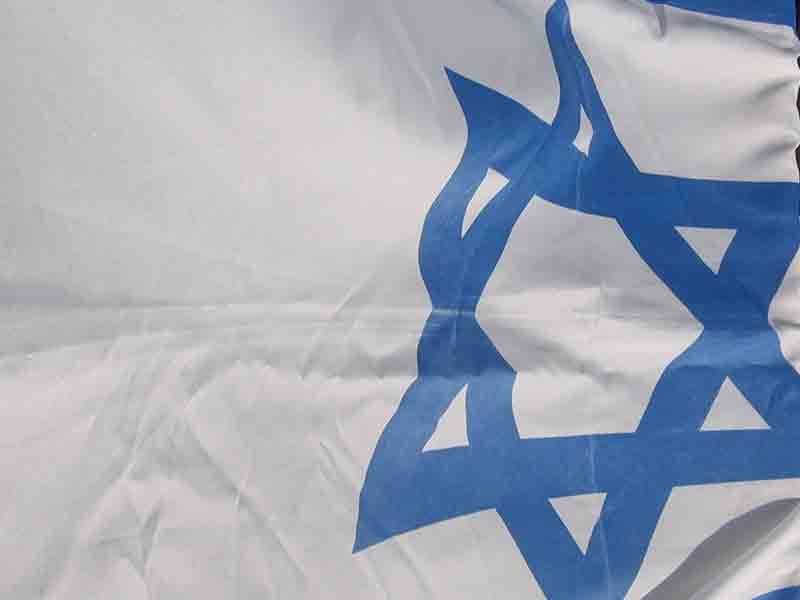Times of Israel Middle East analyst and former Ha’aretz Arab affairs reporter Avi Issacharoff is not one given to alarmism. As a lecturer in modern Palestinian history at Tel Aviv University, an award-winning author and a political moderate, he’s prone to anything but that.
Yet, earlier this month, he began his Times article “Iranians at the gates” as follows: “Unless something changes, Israel is sprinting headlong into another violent confrontation along its northern border, this time against either Iranian troops or Iranian-backed fighters with missiles made to order from Tehran.”
Issacharoff is not alone in warning about the growing menace Iran poses from both the Syrian Golan Heights and southern Lebanon, where its proxy, Hezbollah, has reportedly more than 100,000 Iranian-supplied missiles aimed at the Jewish state.
Issacharoff wrote, “For now, the Iranian presence in Syria is actually limited officially to Revolutionary Guard advisers. But it cuts a wider swath once taking into account all the thousands of Shiites in Tehran’s pay who are deployed throughout Syria.” One-third of Hezbollah’s combat troops have now been stationed in Syria “on a permanent basis.”
READ: THE JAPANESE SCHOLAR WHO’S IN LOVE WITH YIDDISH
With multibillion-dollar agreements with Iran to build nuclear plants, Russia has no interest in stymying Iran’s designs in Syria. Both were complicit in committing war crimes – to scant international outcry – in their efforts to prop up Syrian President Bashar Assad and his Alawite regime.
As the campaign against ISIS in Syria winds down, Iran is tightening its grip on the country. Issacharoff puts it in stark terms: “Tehran is investing enormous resources in order to transform Syria into an Iranian province.”
In August, Israeli Prime Minister Benjamin Netanyahu met with Russian President Vladimir Putin and reportedly urged him to rein in Iran’s military expansion in Syria.
According to several reports, Netanyahu was unsuccessful. Israel had wanted to keep Iranian and Iranian-backed forces to 30-50 kilometres from the Syrian-Israeli border on the Golan Heights. However, according to the Times of London, the United States conceded in its own discussions with Russia about a ceasefire in southern Syria, that Iranian-backed militias could come as close as eight kilometres from the border.
Former Israeli ambassador to Russia Zvi Magen argued that, while Iran “at this stage at least” wants to avoid direct conflict with Israel, Israel “must not allow the consolidation of Iranian influence in Syria for the long term.”
Just how the Jewish state is to achieve that, short of eventual conflict, was not explained, which brings us right back to Issacharoff’s warning.
⇓
In the Sept. 4 issue of The New Yorker, editor David Remnick profiled hit Israeli TV series Fauda (Arabic for “chaos”). It’s shown, subtitled, in North America on Netflix and features an Israeli undercover unit operating in the West Bank.
Lead actor Lior Raz conceived and co-wrote the series with his friend – none other than Issacharoff. Both are IDF veterans, Raz having served in a counterterrorism unit of the special forces called Duvdevan, upon which the fictional unit in Fauda is based; both are fluent in Arabic; and both, as Remnick pointed out, like most Israelis, favour territorial compromise with the Palestinians, though skeptical that this is currently possible.
Another of Raz’s friends from his Duvdevan days is martial arts instructor Nimrod Astel. Raz and Astel reflected on the moral imperative to avoid innocent casualties in their operations. In a passage worth remembering, given the double standard to which Israelis are routinely subjected with almost immediate allegations of war crimes, Remnick noted: “Astel said that when he hears of American forces dropping a bomb on a wedding in Afghanistan or a Russian aircraft destroying a hospital in Syria he has a hard time taking seriously the moral criticism directed at Israeli behaviour in the West Bank (and Gaza).”
Paul Michaels is CIJA’s research director.










